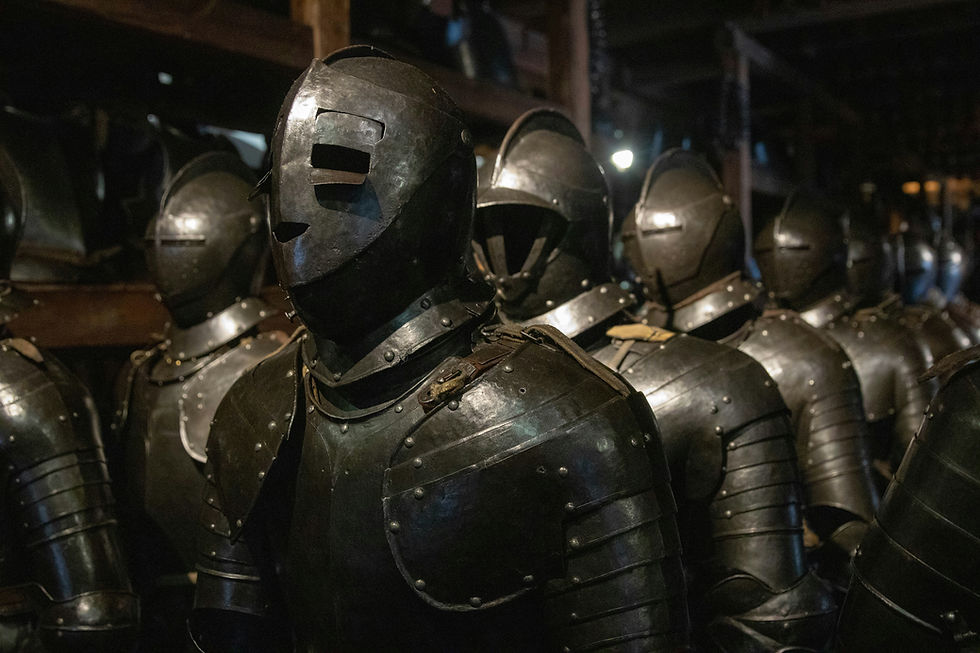Things Christians Need to Talk About: Judgement: The Law, Vs. the Righteousness of Christ
- Brian Doyle

- Sep 30, 2021
- 4 min read
No one likes talking about judgement. Many will (wrongly) try and point out that Jesus says not to judge (He says to judge with RIGHT judgement, and calls us not to condemn). Some people will go so far as to say “only God can judge me!” This is arrogant, and really a scary hill to die on! When we talk about judgement, we need to consider that it’s coming for the WHOLE world! It’s for everyone, and everyone shall either be judged by the Law, or by the righteousness of Christ. If you don’t need God, then you’ll be measured up against the Law. “What right does He have to judge us?” one might ask. The answer is simple: every right. He’s the designer of all things. It’s His world, and we’ve cursed the ground in our rebellion. We’re the reason for wars, sickness, natural disasters, and every other wrong thing in it. In the beginning, God called it all “very good.” There was nothing wrong in the world! We decided to try and have the world, and our own version of righteousness, as opposed to living in harmony with God and the world He had created. And many of us, even many who call themselves Christians, are still trying to do that.
Christians, when we talk about judgement, we need to understand that all of us are guilty; not a single one of us can go before God and claim to be “good” because we’ve all fallen short of the designer’s plans. We can’t point to our lives, ourselves, or any of it and say “I’m good enough for heaven! I deserve it!” No, we can only claim that it is the righteousness of God through Christ Jesus that saves us. Jesus came and lived life according to the specific designs of the Father. Hebrews states that He was tempted in every way and yet did not sin. Jesus became human to fix the design we broke. He lived according to the righteous requirements of the Law, fulfilling it completely, and then became the substitution for our death by being the righteous sacrifice to atone for rebellion (sin), and he rose again on the third day, conquering the penalty for sin (death). For any who call on the name of the Lord will be saved. In the end, We will be judged based upon our works, and none of our works can be good enough if we’re rebels (which we all are), or we will be judged based upon the righteousness of Christ who fit every righteous requirement of the Law, and brings those who believe in Him to New Life, which the Law has no hold over. We need to talk about this! Many are perishing, and think they’re righteous! Proclaim the Good news, and watch Jesus set people free! Revelation 20:11-15 Then I saw a great white throne and him who was seated on it. From his presence earth and sky fled away, and no place was found for them. And I saw the dead, great and small, standing before the throne, and books were opened. Then another book was opened, which is the book of life. And the dead were judged by what was written in the books, according to what they had done. And the sea gave up the dead who were in it, Death and Hades gave up the dead who were in them, and they were judged, each one of them, according to what they had done. Then Death and Hades were thrown into the lake of fire. This is the second death, the lake of fire. And if anyone’s name was not found written in the book of life, he was thrown into the lake of fire. Romans 4:13-25 For the promise to Abraham and his offspring that he would be heir of the world did not come through the law but through the righteousness of faith. For if it is the adherents of the law who are to be the heirs, faith is null and the promise is void. For the law brings wrath, but where there is no law there is no transgression.
That is why it depends on faith, in order that the promise may rest on grace and be guaranteed to all his offspring—not only to the adherent of the law but also to the one who shares the faith of Abraham, who is the father of us all, as it is written, “I have made you the father of many nations”—in the presence of the God in whom he believed, who gives life to the dead and calls into existence the things that do not exist. In hope he believed against hope, that he should become the father of many nations, as he had been told, “So shall your offspring be.” He did not weaken in faith when he considered his own body, which was as good as dead (since he was about a hundred years old), or when he considered the barrenness of Sarah’s womb. No unbelief made him waver concerning the promise of God, but he grew strong in his faith as he gave glory to God, fully convinced that God was able to do what he had promised. That is why his faith was “counted to him as righteousness.” But the words “it was counted to him” were not written for his sake alone, but for ours also. It will be counted to us who believe in him who raised from the dead Jesus our Lord, who was delivered up for our trespasses and raised for our justification.










Comments